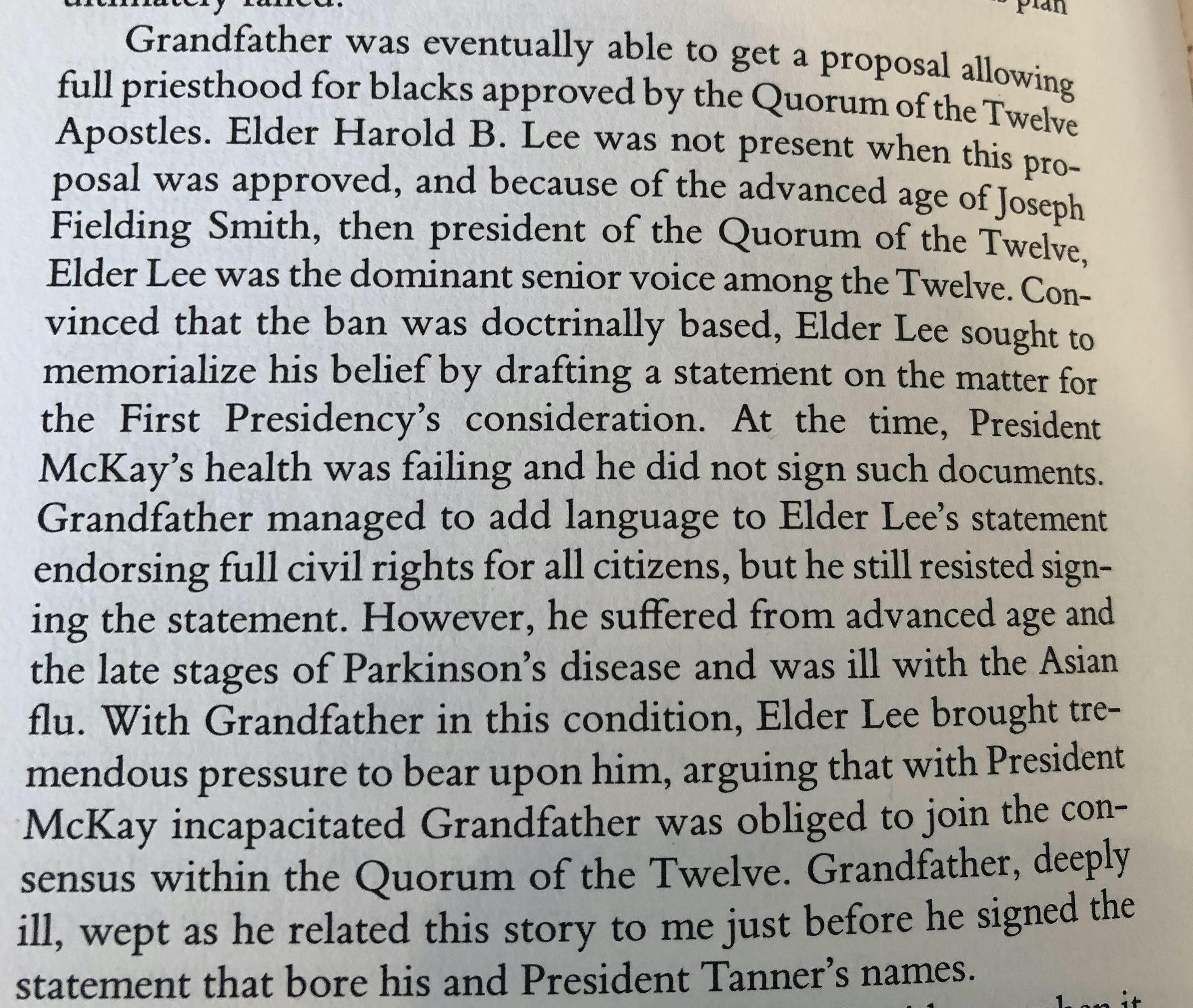Edwin B. Firmage claims Hugh B. Brown proposed to lift the priesthood restriction but Harold B. Lee pressured him to sign a statement saying it was "doctrinally based."
- Type
- Book
- Source
- Edwin B. Firmage LDS
- Hearsay
- 2nd HandLate
- Reference
Edwin B. Firmage, The Memoirs of Hugh B. Brown (Salt Lake City: Signature Books, 1998), 142
- Scribe/Publisher
- Signature Books
- People
- David O. McKay, Harold B. Lee, Hugh B. Brown, N. Eldon Tanner, Joseph Fielding Smith, Edwin B. Firmage
- Audience
- Reading Public
- Transcription
Grandfather was eventually able to get a proposal allowing full priesthood for blacks approved by the Quorum of the Twelve Apostles. Elder Harold B. Lee was not present when this proposal was approved, and because of the advanced age of Joseph Fielding Smith, then president of the Quorum of the Twelve, Elder Lee was the dominant senior voice among the Twelve. Convinced that the ban was doctrinally based, Elder Lee sought to memorialize his belief by drafting a statement on the matter for the First Presidency's consideration. At the time, President McKay's health was failing and he did not sign such documents. Grandfather managed to add language to Elder Lee's statement endorsing full civil rights for all citizens, but he still resisted signing the statement. However, he suffered from advanced age and the late stages of Parkinson's disease and was ill with the Asian flu. With Grandfather in this condition, Elder Lee brought tremendous pressure to bear upon him, arguing that with President McKay incapacitated Grandfather was obligated to join the consensus within the Quorum of the Twelve. Grandfather, deeply ill, wept as he related this story to me just before he signed the statement that bore his and President Tanner's names.
The B. H. Roberts Foundation is not owned by, operated by, or affiliated with the Church of Jesus Christ of Latter-day Saints.

